Subscribe & Listen: Apple Podcasts – Spotify – YouTube
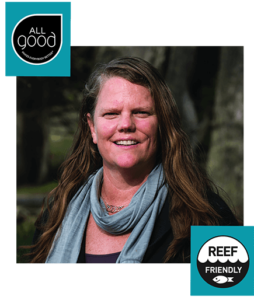
All Good Products is a certified socially responsible company based in Morro Bay, California that makes planet-friendly botanical skin and body care products. In the early 2000s, when Founder and CEO Caroline Duell first started giving away salves made from herbs at her boyfriend’s farm, she never envisioned having her own business.
On the Social Entrepreneurship and Innovation Podcast, Caroline told us that, at this stage, there was no formal business plan in place. She had simply been selling the products to fellow rock climbers and farmers. It wasn’t until she asked a brick and mortar shop to hold onto some merchandise for customers to pick up that she realized for the first time that she was already running a small business.
This pivotal moment started a flood of thoughts for Caroline. If she was running a business, how could she make the necessary decisions to adhere the business to her ethics? How can the supply chain scale responsibly? How could they grow a business that aligned with their core values of social and environmental sustainability?
In her mind, a business was “something that inherently creates compromises and potentially creates devastating methods of supply chain extraction and destruction.” Ultimately, she was not interested in compromising her personal values for the success of a business, so how could she be an entrepreneur?
Caroline experienced a reluctance to build a business not for fear of failure, but fear that she would lose her core values and that the business’ success might come at the expense of the concept All Good was built on: environmental connection. Fast forward two decades and Caroline has built a climate neutral company that’s a Certified B Corp, contributor to 1% For the Planet, and the first business to be a Certified Green Business in Morro Bay, California.
What Makes Someone a “Reluctant Entrepreneur”?
Many socially-focused entrepreneurs, who label themselves as “reluctant,” do so because, like Caroline, they prioritize their company’s original purpose of impact, and they fear entrepreneurship may lead to a diversion from those goals. This hesitancy to embrace the badge of entrepreneurship showcases these individuals’ prevailing respect and appreciation for an entire framework of sustainable business: care for the planet, people, and supply chains.
In many respects, this uncompromising commitment is exactly what inspires many reluctant entrepreneurs’ forward-thinking, mindful, and successful business creation.
This group is using business to create positive change, and the thought that the type of impact they want can be achieved through a high carbon footprint and low standards for labor practices is, of course, completely off the table.
Reluctancy, then, is an asset and strength in ensuring entrepreneurial success in the exact way they want it, and in the way the world needs!
In the video below, Caroline shares her entry point to running her first business, reluctance and all:
From Climbing Guide & Massage Therapist to Small Business Owner
A woman of many trades, Caroline Duell’s passion for an outdoors lifestyle is what led her to create All Good. In the early days of All Good, Caroline and her now-husband used scrappiness and strategic adventure to assume minimal personal financial risk and earn the trust of new customers.
They packed up a biodiesel van with their products and sporting equipment and drove to various cities in the United States. Caroline would find the local small business owners in outdoor retail and ask them to carry her products. This strategy sought out the local communities that frequented these outfitters as vital hubs for obtaining the goods needed to supplement their active lifestyles. This fostered a conversational style of selling products, and it generated cash flow…not to mention it provided new places to bike, ski, and climb. And this is how Caroline secured her first few hundred clients and drummed up new business.
Caroline’s approach, while anything but “traditional,” yielded results that kept her connected to the original mission and vision for the business. In other words, it allowed her to do what she wanted, do it well, but still do it how she wanted. She wasn’t pressured by scaling quickly, she didn’t lose touch with her original motivations, and she didn’t have to sacrifice the things she loved most about the whole thing. She and her husband decided to run the business together and stick to their moral imperatives. Even today, Caroline questions traditional business practices and forges her own path for All Good the only way she knows how: with purpose.
Other Examples of ‘Reluctant Entrepreneurs’ in Business
Dozens of successful businesses have been the result of a reluctant entrepreneur taking the leap. Many socially minded individuals have managed to scale their businesses without losing touch with their core values, and they have a lot of fun along the way.
Yvon Chouinard, Founder of Patagonia
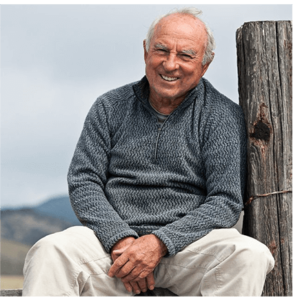
In his 2006 memoir of sorts, Yvon laid out his qualms with the industry of big business and how his personal disdain for corporations that suck the natural world dry for their own profit was reason enough for him to stay away from founding a for-profit company.
“I’ve been a businessman for almost fifty years. It’s as difficult for me to say those words as it is for someone to admit being an alcoholic or a lawyer. I’ve never respected the profession. It’s business that has to take the majority of the blame for being the enemy of nature, for destroying native cultures, for taking from the poor and giving to the rich, and for poisoning the earth with the effluent from its factories.”
A reluctant entrepreneur to the core, Yvon used his inability to live in a world with subpar climbing equipment to fuel the business that became Patagonia. Yvon’s suspicion of business was rooted in the portrait of what decades of culture have told us is a “successful business.”
Instead of refusing to participate, however, Yvon ignited a movement and founded a company that reflects his pro-environment, pro-employee wellness, and anti-consumption beliefs. Patagonia educates on environmental issues, they engage responsible supply chain practices, and they focus on long-lasting, high-quality, guaranteed products. Yvon redefined what reliable strategies look like for businesses and challenged the ideas typically associated with businesspeople.
Learn more about Yvonn by reading his book, Let My People Go Surfing.
Adrianne Chandra-Huff, Co-founder of Bodhi Surf + Yoga

Although she was on track to study law and work in government relations, Adrianne shifted to co-founding Bodhi Surf + Yoga with a friend who had completed the peace corps in Costa Rica. Now, their ever-evolving business idea is the first B Corporation of its kind to pass The B Impact Assessment.
Bodhi Surf + Yoga uses the openness and relaxation and comes with vacation to introduce their guests to ocean care and environmental stewardship. They teach connection that their guests take home with them.
In recent years, Bodhi Surf + Yoga has built a global tribe of former visitors who have been inspired to do good in their own communities as a result of their time at Bodhi.
“So, for me, that’s the most exciting part, that even though like I never saw myself being a business owner, what we have created is something that doesn’t really feel like work.”- Adrianne on the Social Entrepreneurship and Innovation Podcast to talk Responsible Tourism.
Adrianne’s reluctancy presented itself only because it’s not the path she imagined or identified with. In living her passion and shaping her business to her values, Adrianne has built something completely life-changing for her guests.
Andy Puddicombe, Co-founder of Headspace
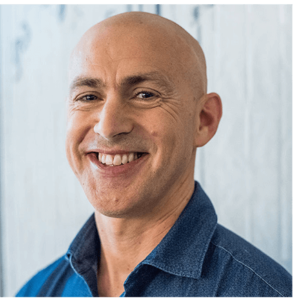
Former Buddhist monk turned entrepreneur, Andy Puddicombe, founded Headspace as a means to expand meditation into more peoples’ lives. A practitioner of meditation since his youth, Andy knew the many positive benefits of mindfulness.
Without any formal training in business, Andy started writing content and found a place to teach one on one meditation. Once the business started gaining momentum, Andy faced the challenge of putting a price on his service.
“To charge money to teach somebody meditation felt so fundamentally different from where I’d come from, but I’d spoke with enough teachers that really kind of coached me through that and helped me understand that that is the reality of living in the world, like your landlord is gonna want some rent. And when you have a skill it’s kind of ok to put a value on that in order to share it.” -Andy on the How I Built This Podcast
Although Andy was a reluctant entrepreneur at the start, he and his Co-Founder created the Headspace app that reaches more than 62 million users in 190 countries because of his ability to pivot, yet still stick to his beliefs. After recognizing the massively positive effect of sharing his skills, charging for the service became less of a hindrance, and it allowed the company to help even more people. Even today Andy’s guiding principles and values shine through: Headspace is free for unemployed and furloughed workers due to the COVID-19 pandemic.
Turning Reluctancy into Fuel: Three Tips for Successful Entrepreneurs
If you’re facing reluctancy in starting a business, here are some ways to challenge the status quo of business practices while sticking to your own code.
- Know Your Principles
Your hesitation sets you apart from the other fledgling companies in your sector. Share and integrate your ethos internally and externally. Include your commitment to climate neutrality, sustainable sourcing, or greener supply chains in a comprehensive guide or business plan, and use these factors to set you apart. This way, you can build the business you’re envisioning to change the world. - Do Your Homework and Find Your Audience
When you know your audience, you can identify how you can reach them in a way that most aligns with your way of doing things. And, since they are the people you want to resonate with, it’ll likely make an impression for them too! Find your niche audience and start small to scale big, responsibly. - Marketing, Marketing, Marketing
To entice new customers and spread your better-for-the-planet business idea, make it obvious to the public that you’re on the same page as them with morals and values. Have you ever read the side of a Dr. Bronner’s castile soap bottle? They’re not shy about telling the whole world about their mission, vision, and beliefs. Next time you suds up, take a page out of their book and proclaim your environmental commitment to anyone and everyone.
Conclusion: Harnessing Reluctancy for the Planet
One of the greatest lessons from reluctant entrepreneurs is that entrepreneurial success doesn’t look any one way. Dozens of business owners have felt some trepidation in creating something from the ground-up. In the case of the reluctant entrepreneur, many have forged their own paths to redesign and challenge traditional business practices. Instead of creating a business and thinking of the planet later, they put the planet and people above profits.
Innovators like Caroline, Yvon, Adrianne, and Andy are creating a new normal for business and you might be next! If you need some extra inspiration, check out 50 Social Entrepreneurs Changing the World. Dream big and harness that reluctance to build something legendary!
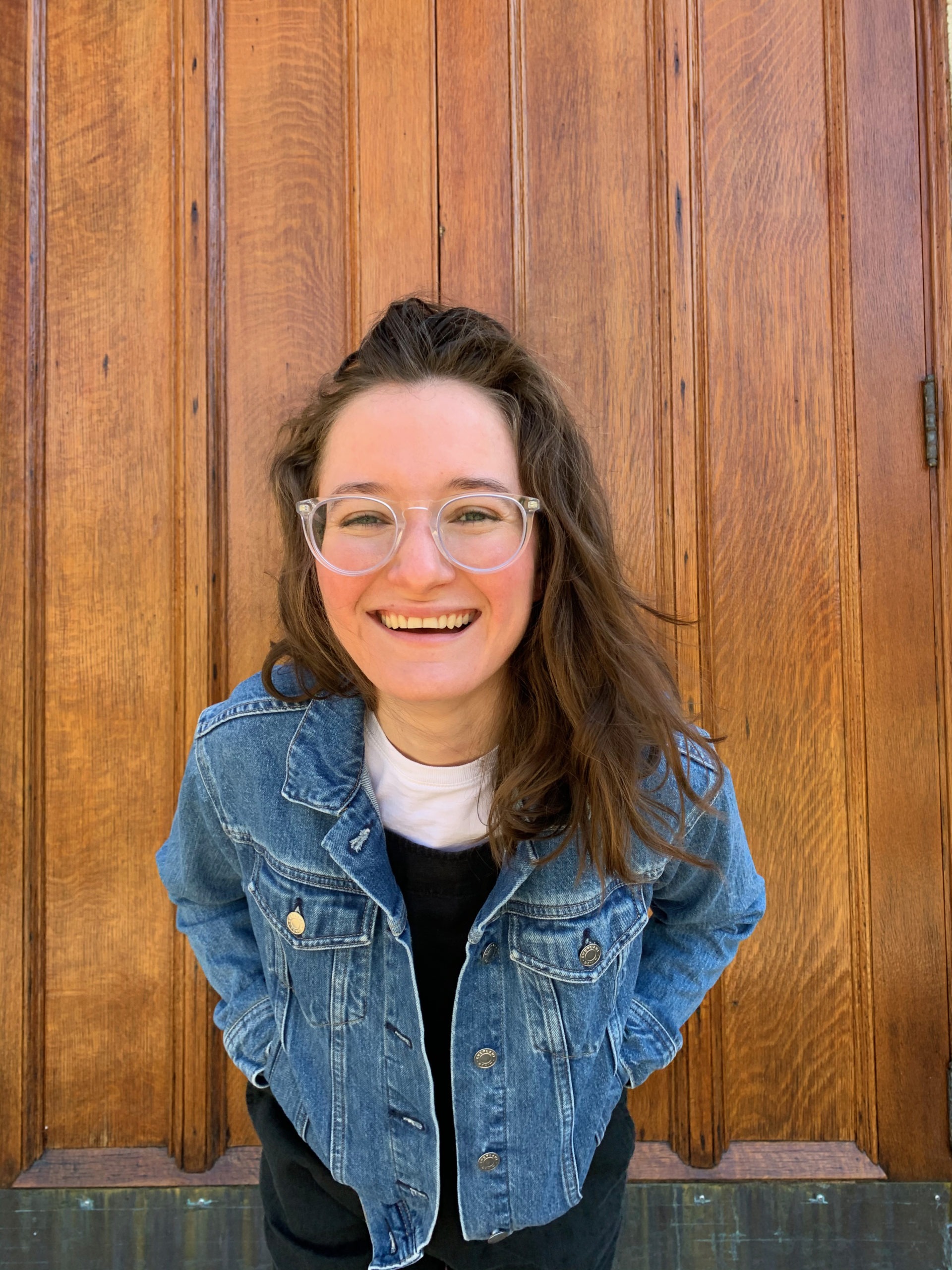
Jacqueline Goodwin
Sustainable Workplaces Manager & Writer
Jackie is the Sustainable Workplaces Manager at Urban Green Lab, a sustainability education nonprofit in Nashville, Tennessee. She’s passionate about connecting people with actionable ways to make a positive impact on the environment. She graduated from Dickinson College with a degree in Environmental Studies and a certificate in Social Innovation & Entrepreneurship. Jackie worked in the nonprofit world in Washington D.C. for Ashoka and the National Building Museum.
Jackie enjoys hiking with her rescue dog, finding craft breweries, and traveling the globe in search of plant-based eats.



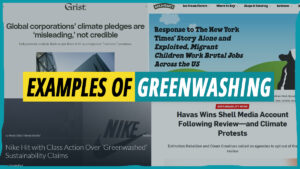


Leave a Reply